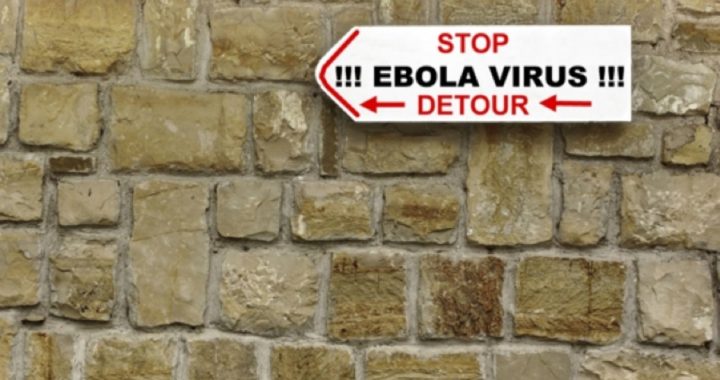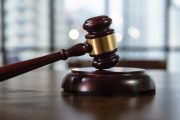
On Friday, New York State Governor Andrew Cuomo announced a mandatory 21-day Ebola quarantine on doctors and nurses returning from treating Ebola patients in West Africa. But by Sunday, after the White House had harshly criticized the plan, Cuomo loosened those restrictions.
The announcement of the quarantine last week by both Governor Cuomo and New Jersey Governor Chris Christie came one day after a New York City doctor, Craig Spencer from Doctors Without Borders, was diagnosed with the Ebola virus. A public debate erupted after it was revealed that Spencer, 33, had traveled widely by mass transit around the city. Illinois announced a similar policy on Saturday, with Illinois Governor Pat Quinn calling it a “common sense step.”
Governor Cuomo asserted,
Since taking office, I have erred on the side of caution when it comes to the safety and protection of New Yorkers, and the current situation regarding Ebola will be no different. The steps New York and New Jersey are taking today will strengthen our safeguards to protect our residents against this disease and help ensure those that may be infected by Ebola are treated with the highest precautions.
Dr. Anthony Fauci, director of the National Institute of Allergy and Infectious Diseases, voiced concerns that the mandatory quarantines would discourage healthcare workers from volunteering in West African countries. “We do not want to put them in a position where it makes it very, very uncomfortable for them to even volunteer,” he told Fox News Sunday, adding, “The best way to protect us is to stop the epidemic in Africa.”
Further criticism followed when Maine nurse Kaci Hickox, returning from Sierra Leone, publicly complained about her mandatory quarantine under New Jersey’s policy, stating that she felt “like a criminal.”
Early on Sunday, the White House voiced fears that the mandatory quarantines would create “unintended consequences,” and announced the creation of new federal guidelines for returning healthcare workers exposed to Ebola in West Africa.
Fox News writes of the revised guidelines:
Medical professionals who have had contact with Ebola patients will be quarantined at home and receive twice-daily monitoring if they have no symptoms. Family members will be allowed to stay, and friends may visit with the approval of health officials. The state will also pay for any lost compensation, if they are not paid by a volunteer organization.
Upon her return to the United States from Sierra Leone, nurse Hickox was placed under quarantine by the New Jersey Health Department; she had access to a computer, her cellphone, magazines, and newspapers. An article published by the Dallas Morning News detailed the treatment she received after flying into New Jersey’s Newark airport. “I am scared about how health care workers will be treated at airports when they declare that they have been fighting Ebola in West Africa,” wrote Hickox. “I am scared that, like me, they will arrive and see a frenzy of disorganization, fear and, most frightening, quarantine.”
According to Doctors Without Borders, Hickox has been treated poorly, and she claims that the isolation tent in which she spent the weekend outside of Newark’s University Hospital was unheated and that she was dressed in uncomfortable scrubs. The group also indicates that she has not been updated on her status or kept in the loop regarding the process. “Hospital personnel are keeping her in isolation and have not informed her of any next steps,” Doctors Without Borders asserted..
Hickox has reportedly hired Norman Siegel, a civil rights attorney who specializes in cases involving the government, to challenge the New Jersey policy.
“There is a notable lack of clarity about the new guidelines announced … by state authorities in New York and New Jersey,” notes Sophie Delaunay, executive director of Doctors Without Borders. “We are attempting to clarify the details of the protocols with each state’s departments of health to gain a full understanding of their requirements and implications.”
New York City Mayor Bill de Blasio criticized the quarantining of Hickox, stating that she was treated with disrespect because she was interrogated a number of times without explanation.
The backlash compelled New Jersey Governor Christie to issue a statement on Sunday assuring that home confinement will be used for residents of his state, when possible. “The protocol is clear that a New Jersey resident with no symptoms, but who has come into contact with someone with Ebola, such as a health care provider, would be subject to a mandatory quarantine order and quarantined at home. Non-residents would be transported to their homes if feasible and, if not, quarantined in New Jersey,” said a statement from Christie spokesman Kevin Roberts.
Christie does, however, defend his decision to impose the quarantine, saying he has an obligation to protect residents amid Centers for Disease Control guidelines that remain a “moving target.”
The New Jersey governor criticized the CDC’s plan because it’s “a voluntary system with folks who may or may not comply.” “The government’s job is to protect the safety and health of our citizens,” he declared. “And so, we’ve taken this action and I absolutely have no second thoughts about it.”
Christie believes that the CDC will eventually recognize the quarantine to be a good idea. “Imagine that you’re the person in charge of public health for people of a large, densely populated state … and these protocols continue to move and change,” Christie said. “It was my conclusion we need to do this to protect the public health of people of New Jersey. [New York] Governor Cuomo agreed. And now, [Chicago] Mayor Emanuel agrees. And I think the CDC eventually will come around to our point of view on this.”




